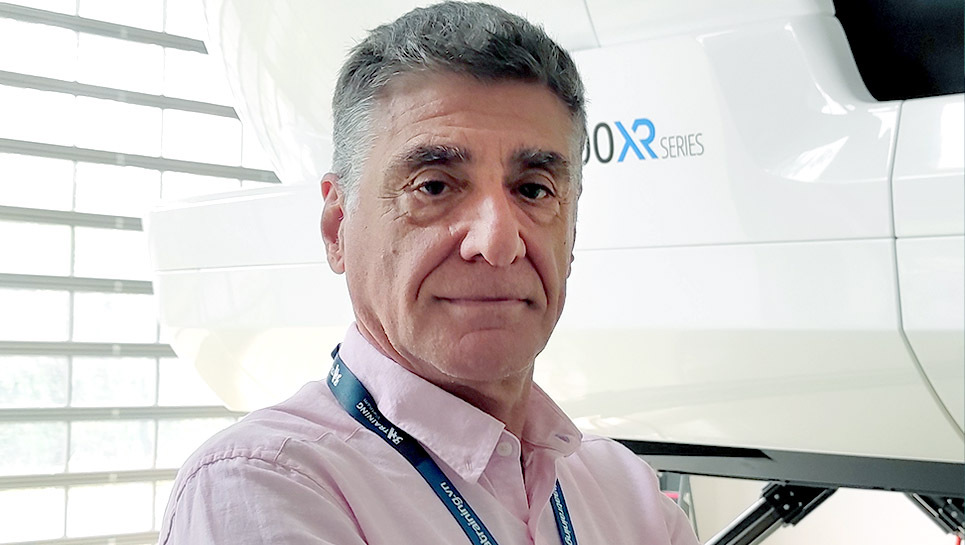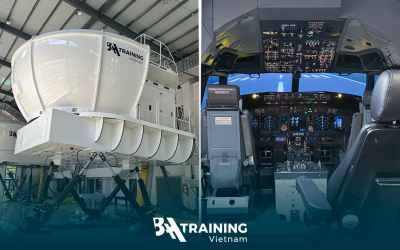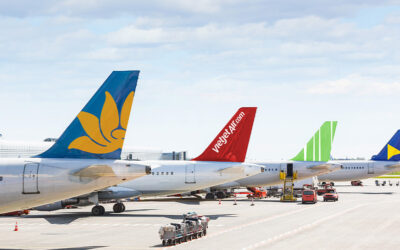Becoming a pilot is a lofty career objective that can help your professional ambitions reach new heights. However, choosing the most suitable route to achieve this goal might be challenging. While ATPL Integrated and CPL modular offer a more traditional learning approach, a Multi-crew pilot licence (MPL) program is a „modern“ airline-oriented pathway. It is based on developing the pilot’s competencies throughout each phase of the program, where advanced training devices are used to optimize efficiency and costs.
Roberto Casarin, Deputy Head of Training at the aviation training centre BAA Training Vietnam, has shared his views on what advantages students choosing the MPL can expect.
How was the need for the MPL training born?
The MPL training concept was born in the early 2000s when the industry required a modern, relatively fast and efficient way to prepare a skilled pilot to satisfy the enormous demand expected in the new millennium. Several years later, ICAO and IATA published the regulations and guidance for the MPL program that started to be implemented at the end of the first decade of 2000.
Why should a future pilot give preference to the MPL program?
Future pilots will be required to be System Operators and Managers of flights thanks to the modernization of aviation technology. They will be prepared for it accordingly by undergoing the MPL program focused on the development of Non-Technical Skills (NTS) and Competency Based Training (CBT) to enhance resilience and at the same time develop the right skillset required for modern commercial aviation.

What are the benefits of the MPL for airlines?
There are multiple benefits related to the MPL for airlines. The most crucial is the reliability of new pilots because they will be attached to the operator from day one. It means they will be continuously developing their skills according to the context – the standard operations procedures of the carrier itself. The airline will have complete control of the quality and performance of new pilots and will be able to correct possible issues during the MPL program to produce top-notch training results.
How does the MPL program differ from an ATPL?
The MPL program, compared to the ATPL, is shorter and more focused on Non-Technical skills, less flying time on real aircraft and much more time spent on state-of-the-art full flight simulators to develop the necessary piloting skills. One important fact to note is that the cadet pilot belongs to the operator from the first day of the MPL course, meaning they are employed from day one. There is no such opportunity to secure employment beforehand for ATPL cadet pilots.
Some people are concerned about the MPL program offering limited training in an aircraft. What’s your opinion on it?
Many people are risings concerns about insufficient hours spent on real aircraft by the MPL pilots. While it is true that they spend less time on a real plane, it has also been proved that training in simulations reality is a more cost-efficient and helpful way to acquiring practical skills and build confidence.
Is it true that the MPL training focuses on the training outcome rather than training time? Why?
The MPL training focuses on the outcome, and this is what we need from new generations of pilots. We aim to prepare skilled, professional and resilient pilots who proactively maintain safety margins in flight operations. We can only achieve it by focusing on the correct outcome that is associated with reasonable training time.
Are there any regions where the MPL is more popular than elsewhere? How popular is it in Vietnam? What might be the reasons?
The MPL was implemented mainly by economically wealthy operators because of the huge investments in training devices and materials. In the Middle East, it is quite popular, whereas in the Far East, it has not been implemented yet. Vietnam will be one of the first in the area.
Do you have any statistical information on how the ATPL Integrated and the MPL programs’ pass rates compare?
Statistically, the MPL rate of success is double compared to the ATPL success rate, according to a survey taken in the Arabic Gulf countries from 2013 to 2019.
Hopefully, the interview with Roberto has shed some light on what the MPL training program stands for and what kind of advantages it has over alternative pilot training paths.








